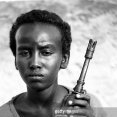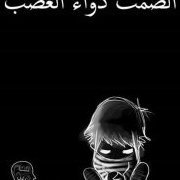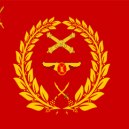Leaderboard
Popular Content
Showing content with the highest reputation since 01/25/2019 in all areas
-
4 pointsNiyaw horta comments kaagu kaama khasaarin aragti saxaad cabirtay oo aad qortay. Laakiin imika waanba sakhraansanay oo kuuma jawaabi karo indrkay talaabo wax waydiiya. Anigu geeridii nebiga ma ogiye
-
4 pointsOn the positive side this shows Somaliland is starting to realize ictiraaf isn't possible and taking more active role in the politics of Somalia.
-
4 points
-
4 pointsDP World completes 400 meter expansion of Somaliland’s Berbera port. 59Shares Friday August 14, 2020 DP World this week announced the completion of a 400-meter expansion of the Berbera port in Somaliland. The Dubai Port Company that is contracted to expand the port said once operational, it will increase the terminal’s capacity by 500,000 TEUs per year and further strengthen Berbera as a major regional trade hub servicing the Horn of Africa. In a tweet, DP World stated: “We have just completed a 400m quay and a new extension at Berbera Port, Somaliland. Once operational, it will increase the terminal’s capacity by 500,000 TEUs per year and will further strengthen Berbera as a major regional trade hub servicing the Horn of Africa.” The news has elicited excitement within the Somaliland government with the vice president Abdirahman Abdilahi saying: “As Deputy President of Somaliland and on behalf of the people, words can’t express my great excitement about the nearing completion of the Berbera port expansion. my gratitude goes to the Sheikhs of the UAE and the DP World.” DP world, the Dubai based world’s largest port operator is the key player in the rebuilding of Berbera, they have invested $442 million for the expansion of the port and are also the economic free zone. It has projected to complete work by February next year. advertisements In 2017 when the original agreement was signed, the CEO of DP World Mr. Sultan Ahmed bin Sulayem drew a parallel between the growth of Dubai and the development path Somaliland is on and added “Our vision is to make Berbera a trading and transportation hub for the Horn of Africa.” Berbera port is among the few corridors in the Horn of African region, which serves for both military and commercial purposes. The Berbera Port was built in 1964 by the Soviet Union and further expanded by the United States of America (USA) in 1982. It has served for both the Soviet Union and the U.S military within a span of 20 years. Once completed, facilities and service will surpass those in the neighbouring Djibouti according to the contractors. According to the DP World, the port will be able to handle the biggest ships compared to the other ports in the region and will complement activities at the Port of Djibouti and the Lamu Port which is also under expansion in the coast of Kenya. The Berbera Port expansion is the largest investment in Somaliland since it parted ways with Somalia in 1991. Work on the port expansion has reduced due to the measures put in place in the fight against the spread of the deadly coronavirus but the Somaliland government and the DP World have projected all facilities will be ready for operation early 2021. “We are very much on course. Of course the coronavirus has affected the speed at which we were on, but we will soldier on and deliver the most modern port facility in Berbera,” an official of the DP World said. The Berbera port expansion, designed to equip the Somaliland port for major vessels and transform it into one of Africa’s pre-eminent facilities. Expansion of the port started early last year with the first phase at a cost $101 million. Federico Banos-Linder, Vice President External Relations, DP World, said once the port is done, Somaliland will be one of the biggest and most modern players in the maritime industry in the Horn of Africa. “Already with phase one of the three phases done, we have increased the container capacity by 50 per cent and pushed volumes by 70 per cent which is a massive improvement. “We are now exporting 4 million livestock from 1.5 million just less than a year ago,” said Banos-Linder. Total investment of the two phases will reach $442m. The port’s current capacity is around 150,000 twenty-foot equivalent units [a measure of ships container carrying capacity] and is set to expand to 450,000 TEUs once development is complete. DP World firm will also create an economic free zone in the surrounding area, targeting a range of companies in sectors from logistics to manufacturing, and a $100m road-based economic corridor connecting Berbera with Wajaale in Ethiopia “Our aim is to make this an important regional hub for the maritime industry in the Horn of Africa,” DP World chairman and Chief Executive Officer Sultan bin Sulayem said. “We are within schedule in our work,” he added. DP World holds a 51 per cent stake in the Berbera port, while Ethiopia holds 19 per cent and Somaliland the rest
-
4 pointsThe recently upgraded Hagreisa land database registry is actually part of a larger project by Somaliland Gov't and SolidBlock Inc. The project will be using state of art block-chain based database to register land titles and other key assets.
-
4 pointsOodweyne They can't keep up. Befuddled, bemused and bewildered by Somaliland’s growing gravitas at international diplomacy. While they play tiddlywinks with Mudulood this and Dhuusomareeb 2.4 that. At least they're a curious bunch.
-
4 pointsThis is great improvement.The land database in Somaliland has been a consistent headache and cause for a lot of troubles including missing files, disputes etc. The introduction of GIS system will greatly simplify while at the same time is more secure and more reliable.
-
4 points
-
4 pointsAnd when they are training our navy and Air force it will be reported as a "Latin American" and an "Eastern European" country respectively
-
4 pointsThe political culture in Somaliland is an egalitarian one. Specially Beesha Dhexe. So for everyone from the unknown to the well known to have equal say and communicate their personal feelings or believes, it is a welcomed sign that the people are moving forward. This is why in Somaliland almost everything is openly discussed and nothing is hidden. The gov't is held to account, the ministers coming on TV explaining their side of the story. You will never see this type of open discussions of gov't ministers and opposition party engaging in lively political discourse about the goings on, anywhere else in the Somali regions. We know Mogadishu Khaire's moratorium on media engagement by his cabinet. We know Cheeseman, after almost 3 years, has never held an open questions interview. The same goes for Puntland where each Hagbad inheritor takes the enclave on a personal ride with no questions asked. So, all these public engagement, is music to my ears that the people are awake and taking part and shaping their future. What other Somalis take for granted, in Somaliland we don't. If we think the gov't is not on the right path, we tell it like it is without mincing words. And not wait until end of the tenor and call it 'what a bad leadersip it was' like Puntlanders do every 4years. Rather, you have to oppose what is wrong and support what is right every single day.
-
3 pointsVery much reflections of what I would expect from a bloody foreigner on a hushed visitation to a war zone marinated with a toss of mislaid Somalinimo flavour to balm chapped cavities of the forlorn diaspora hordes. Take you seriously, I shall not, till you have taken a crowded bus, with tiny seats not fit for a tall, burly gentleman of a certain age, from Adam Adde airport, paid the $5 fee to stride to the taxi rack, fight your way through rows of poor beggars to find a taxi or a bajaj to your destination; then at dawn, take a stroll through Bakaraha market for a homely breakfast in one of the low end shacks-turned-restaurants competing fresh "laxoox / canjeelo" flying off the pan with builders / workers in the morning rush, and get a sodden whiff of the rubbish, from the day before, still stacked up in the streets. With that, you would be a local lad back at home. But with you fancy bulletproof limo, VIP reception, backdoor exit to the city, and trotting between blue beaches and fancy hotels, mate, you are a bloody foreigner on tour. Now, tell me, is Awdal safe? Is Lughaya secure? Is Ceel Sheekh off limits?
-
3 points
-
3 pointsI don't understand why anyone needs to blame her for a mere speech. The United States along with pretty much everyone on this planet already made it clear to the Xabashis that Ethiopia has no right to buy cheap land and sea from the despot in Hargeisa.
-
3 pointsThe stip of land probably bigger than Gaza which warlord Muuse is giving away to Ethiopia will quickly be flooded with millions of Oromos and Afar, creating a de facto Ethiopian province in our own country. This new foreign region will cut off the Somalis in Djibouti from those of Somaliland and Somalia, completely isolating them. This isolation will weaken them and enable Ethiopia to help the Afar take over Djibouti. After getting access to the sea, Ethiopia will then be even more aggressive in pushing the Somalis in Ethiopia off their land and threaten every other region from the sea. This disaster waiting to happen must be stopped before it is too late.
-
3 pointsIt was clear from the beginning, that the Oromo narrative was pushed by Ethiopia as the precursor for voluntary and indirect annexation. Ethiopia has for decades used a politics of Oromisation in Somali region solidify its government grip on Somali’s and expand its territorial hold, so this wasn’t anything new, what is new however is this politics being applied or expanded to inside sovereign Somali territory.
-
3 pointsCarfaat Layskuma hayo in afrikaan iyo amxaaro maamulaan koonfurta, xoogna ku joogaan markaan dhexdeenii is dilnay oo daciifnay. Gaalo kale oo walaalahood ah yaa koofiyad cagaaran u xidhay nimankaasu waa sharciyaysan yihiin. Meesha kaliya oo aan islahaa waa lagu faani karaa waxay ahayd waqooyiga oo aan askari ajnabi ah joogin marnabana aan lagu arag. Laakiin snm waxay noqotay ninkii boqolka soomay oo bakhtiga ku afuray Baqdinta aan iminka qabaa waxay tahay in la arkay meesha aad ka jilicsan tahay oo ah "tol" la'aanta. Taasina waxay keenaysaa in amxaar kuul leh lagula walaaleeyo, dadkaagii soomaaliyeedna cadaw kuu noqdaan. Ugu dambayn Adeer hashaasu waa jabtay, waliba si sahlan geelu haduu jabo ma kabmo waa la qashaa, Hashaas jabtay cuna oo karsada intuu amxaar ceeriin ku cuni lahaa. Afeef Hadaad luuqadayda garan waydo raali ahaw, jiilkii hore yaan kasoo jeedaa. Ogowna aduunka waxaan ugu necbahay caadifadda ka sakow, inaan arko soomaali, soomaali kale maydkiisa kor taagan xataa haduu shbaab yahay.
-
3 pointsXamar iyo shirqoolkeeda ha iska ilaaliyo. Meesha bahalo ka buuxo.
-
3 pointsMasaakiin, maati carruur iyo waayeel ku jiro, maalin walba la duqeynaayo ayuu ku jees jeesteynaaye, arrogantly and proudly. Qofka saas camal ah needs to be brought to earth in a crush. And as a self-admitted jaahil himself, karbaash ayuu wax ku gartaa, not walaaloow iyo ereyo jilicsan. His behaviour also reminded me Caydiid Sn's and Jr's moooryaantiiaa heystay deegaanada Koonfur Galbeed from mid to late 1990s. Saan camal ayee u kibirsanaayeen, faan iyo booto bilaash ah wadeen. Tii ka dhacday Rabi ayaa ogaa, xataa xaasaskooda ka cararay, including Xuseen Caydiid's wife lagu qabtay markii Baydhabo laga saaray in mid 1999. Waala sii daaye oo Xamar aaday. I guess waa dhaqabka 'habraha' - be them in Waqooyi ama Koonfur - dad la dulminaayo faan iyo booto ugu sii daraan.
-
3 pointsHuman wave attack baa nagu dhacay , we underestimated ciilka dadka Ku gadhoodhay. Rag waad Ka adkaan kartaa laakiin bulsho dhan oo gurigooda jooga lagama adkaan Karo. Waan Ku faraxsanahay in muddo dheer oo Sool Clan wax naga tirsanayey ay maanta si wacan nooga adkaadeen. As a HJ Guushan Anigu uma arko qiyaame noo dumay, if we honour it. Waxan u arkaa nolol cusub oo noo bilaaban tay anaka iyo Sool Clan . Mid Ku dhisan sinaaan iyo walaaltinimo. Sidii awalba noo caadada ahayd, after every war halays waso. Saacada laga bilaabo qalasad baan isu dhiibaya faraxsan Anagu qab baanu Ku dagaalana haduu doono kibirba ha ahaadee , mar hadii goojacade nalaka saaray general bootaana la qabtay. Qabkaasi naguma jiro hada. Sool clan deserved this victory. Congratulations baan leeyahay. Wixii lasii wadwadaa waa dagaal saqajaan .
-
3 pointsNow that Muuse & Co. have been defeated, let us sit down, as Somalis, as we have always done, agree to live in harmony, and work for a common good. No vengeance, no point scoring!
-
3 pointsThis competition and the similarly cringe worthy ones before it epitomises the Somali people as a whole. It is a perfect picture of our collective failure. This world and everything in it is defined by competition. It's fabric is made of the carcasses of the loosers and the trophies of the winners. From the constant struggles between the prey and the predator in the animal kingdom (survival of the fittest) to the competition for resources between individual humans and their families, everything is based on competition. Nations which are just a collection of families, are also in competition. And in this group competition of families, we became a joke just like our tortoise sister in this embarrassing clip.
-
3 pointsProjects that will be finalised This year. 1. Burco - Ceerigaabo Road - 300 km of fully locally funded paved road will be finished in September 2020. This road has already cut the travel time between Burco and Ceerigaabo by half. People now can have their breakfast in Hargeisa and have lunch in Ceerigaabo. A tremendous improvement. 2. Berbera corridor Road - 200km modern highway that will connect Berbera to the trading town of Togwachale will be completed by October this year. 3. Berbera Port expansion - the new 400m Berbera Port Container Terminal will be completed by October this year 4. Berbera International Airport - the newly refurbished with new 4km runway, will be opened later in the year. Projects that will be turning sod in 2020 1. Hargeisa - Burco Road via Oodweine, funded by African Development Bank and Somaliland Government, this 180km hinterland road will cut travel time between Hargeisa and Burco by 1/2. The current road via Berbera is total length 300km. The new road via Oodweine will be 180km. Travellers will be saving over 100km of fuel expense and a lot of time. This road will also help cut time to far Eastern regions i.e. time to reach Ceerigaabo will be further cut. 2. Djibouti - Jigjiga Road via Borama, also Funded by Africa Development Bank, this is 250km Road that will link Djibouti and Jigjiga passing through Borama. 3. Drill babe Drill - The first Oil well of many will get drilled this year. 4. Ceerigaabo - Mait Road - a 30km steep downhill/uphill road that winds down through Daallo Mountains and crosses Tabca Pass. This road will cut travel time to and from coastal communities. 5. Mait Fishing Port - A port that will serve as an economic hub for Sanaag regions to tab into the rich fishing seas on its shore.
-
3 pointsEl-Presidente Mudane Muse Biixi has proven again that he is no-nonsense man. And by that he has won a lot of admirers from around the world and specially in the crucial and important group in the Foreign Policy circles. Africans are watching and learning from Somaliland.
-
3 pointsHello; Roughly 20 years ago I remember this beggar from Baidoa nearly lost it when President Riyaale expelled from Somaliland a couple of hundred Professional beggars from Baidoa and it seems he’s still bitter about it. Sadly in my absence from SOL no one bothered to set him straight so I will try to play the devils advocate here and break the sad news to him knowing fully well how obstinate beggars are. President Biixi does not chew qaad, smoke or drink. I know your beggers mind can’t and won’t grasp that but it’s a FACT. However I can’t say the same for your Fellow beggars back home in Baidoa and among the few in the diaspora. 75% of the income your folks earn begging in Mogadishu is spent on those 2 vices. both alcohol and qaad have become a favorite pastime in Baidoa enjoyed by many of the locals. Even the former chief beggar Jawari was an alcoholic. Excuse me if I forgot my manners but one can’t but help kick an obtuse beggar once in a while. good to see the old folks who I knew from many many years ago btw.
-
3 pointsDjibout - Borama - Jigjiga Road Somaliland's Ministry of Transport & Roads Development
-
3 pointsA Somaliland delegation led by foreign minister Mr. Faratoon, had proposed a union with Republic of China (Taiwan). For the Taiwanese , since they do not share a border with Somaliland , it was a welcome joke, but the minister insisted that sharing borders with another country is not a requirement for this union to happen. He suddenly put on the table a document signed by his president and told the audience to be serious and hear him out. The Taiwanese hosts were shocked how serious the minister was and decided to give him the floor. Minister Faratoon acknowledged the seriousness of the issue and said he have to stand up to deliver the sales pitch of the century. As he begun his sermon and the merits of this union, Dr. Edna who was sitting beside him sensed that Mr. Faratoon was some what hesitating in his delivery, and jumped to eloquently set the stage. As she sat down, another member of the delegation Ahmed Yasin, jumped to the fray and said, " as the speaker of Somaliland parliament" ( he is not the speaker but the deputy , but what do the Chinese juniors know) and said we got your General Assembly seat in silver plate. The delegation explained the steps to be taken to achieve a seat at the UN for the united countries of SomTaiwa. Here are the steps: Somaliland: First, Taiwan have to spend money for Somaliland recognition in Africa. Since everyone is saying Africans should be first decide if Somaliland is to be recognized, we will buy African votes within the African Union. THere are already enough candidates willing to recognize us if the price is right. South Sudan, Guinea, Gambia, Chad, Kenya are among those who could give as the first votes. Taiwan: How much money does it take to buy these votes? Somaliland: Few hundred million dollars.. Taiwan: that is a bargain. less than a billions for a UN seat, that would be the best deal ever. We are willing to spend 5% of our sovereign wealth which is billions to achieve a UN seat. Having said that how could that translate a victory for Tiawan? Somaliland: If you are willing to pay, we could get two dozen Africans, and then repeat the same plot in Latin America places like Guatemala, El Salvador, Peru and son. Within few years we could get 50 countries who would recognize Somaliland. Taiwan: of course., but you did not answer my question. How could that benefit us? Somaliland: WE will become one united country before we start the journey. When we get the recognition you will get too. A vote of recognition for Somaliland will be a UN seat for Tiawan. Taiwan: What should we call that country? Somaliland: didn't we said earlier? It will be called SomTaiwa. Taiwan: We like the idea but we want our name Taiwan to be before yours. Like TaiwaSom. It is only fair since we are bankrolling the whole campaign. Somaliland: give us a minute, we have to discuss about this new development of the name, because we assumed SomTaiwa was the name we agreed upon. Well, now the debate had started among the delegation. Minister Faratoon and another one from west Burco insisted that we are not willing to lose the Somali word in this name change. Dr. Edna and Ahmed Yasin who are close to Biixi disagreed. They said, " We do not mind losing this Somali thing, because some us had even had thought many years ago that instead of calling us the colonial name Somaliland , we should have called ourselves Maandeeq or even Shankaroonland. Saleebaan Gaal who did not say a word in all this debate , stood up and said, I can not allow Somaliland to be swallowed by these small eyed people, let us go home and debate this back home in Somaliland. Dr. Edna jumped and said, " how do you intend to debate this in a public forum? Saleebaan Gaal: we will tell the people the usual lie and explain that Taiwan is willing to make economic integration and future free trade with us. The delegation went back to the room and told the Taiwanese, " we will be back" and left. Folks, the debate continues.
-
3 pointsEven what you have suggested, as wild a move as they are, doesn't amount to much at all. Probably the publicity this whole thing has generated so far for Somaliland, if quantified in dollar terms, is more benefiticial than anything China can do to harm Somaliland. From the outset, I can say that China, the country, the system, the way they do business or even engage others, is not compatible with Somaliland's. They are pro-dictatorship, they do not encourage civil liberty, accountability, free press etc. The things that are dear to anyone who has a thinking mind and cherishes freedom. Whereas, Taiwan is the polar opposite to the China-Way. The Taiwan Model is about openness, liberty, freedom, democracy, free press etc. All the things I want Somaliland to be and learn. The intangible benefits of this relationship is enormous. Just consider, Taiwan sending its election observers to Somaliland. That is in itself a benefit that China cannot provide. More over, I think Israel comes to mind of a country that has successfully reserved the trend. If in the 1970s, 80s countries were all severing diplomatic ties with the Jewish state, today it is different. Many African countries are reestablishing links with Israel. Even some Arab countries are openly or covertly doing so. Hence, this new relationship between Somaliland and Taiwan is much more deeper than many have grasped. It is a win-win relationship. Taiwan is selling its model and Somaliland is the perfect place to help create a reality of that model. A strong selling point for Taiwan to other countries, of what they are missing out. Hopefully reversing the trend.
-
3 pointsThe Mandarin bit of what the guy is writing could be "they are not the pirates".
-
3 pointsTaiwan trains counter-terrorism troops for Middle Eastern country Taiwan's 42-year-old MPSSC has already trained one group of recruits while another on hold due to pandemic, local media claims 3454 By Sophia Yang, Taiwan News, Staff Writer 2020/05/09 13:55 MPSSC in 2017. (Wikimedia Commons photo) TAIPEI (Taiwan News) — A high-ranking military official has claimed that a Middle Eastern country has inked a training agreement with Taiwan, according to a Liberty Times Net (LTN) exclusive story. Under the deal, Taiwan's Military Police Special Services Company (MPSSC), under the Military Police Command, is responsible for coaching the Middle Eastern country's counter-terrorism force. They will travel to Taiwan in groups for training that will enhance their knowledge, skill, and responsiveness in the war against terror. Similar to the United States Army Special Forces (Green Berets), the MPSSC was established in 1978 and has earned international acclaim for counter-terrorism operations and protecting high-ranking officials and ambassadors in Taiwan. It is also known for anti-hijacking and anti-sabotage operations. Taiwan is one of the few Asian countries capable of training special task forces and providing such services to other countries, according to LTN. It reported the first batch of trainees has concluded training and returned to home, while a second batch of recruits is on hold due to the COVID-19 pandemic. https://www.taiwannews.com.tw/en/news/3930970?fbclid=IwAR0emABRyt6O1Tu0X9gkWMx7vMox2MgKtLVwCAOv3zIB_heUQwd_e2IfBps Rumours has it that it's Somaliland.
-
3 pointsI love it when Somaliland is making the rest of us look like either we do not know the seriousness of the situation or we have no clue what to do where to start. We can't even brag about herd immunity since we are cowards. May Allah (swt) help the poor nomad. As for Somaliland, thank you for making the Somali part of the world.
-
3 pointsDo you think the Americans are unaware that Somaliland is just a smaller version of southern Somalia with just as much corruption, nepotism, mistrust among clans, violence, tribalism, religious extremism, etc?
-
3 pointsIt was always called Doollo for a over century. Haven't you guys heard of the famous poem by Cali Dhuux "Doqonkii "0" ahaa, Doollo laga qaadye Loo diid Dannood iyo hadduu, degi lahaa"
-
3 points
-
Newsletter


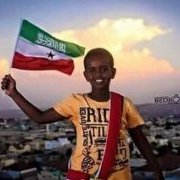

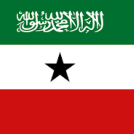
.thumb.jpeg.79edf7e652eaa56ebe85e2c649f6cd14.jpeg)



